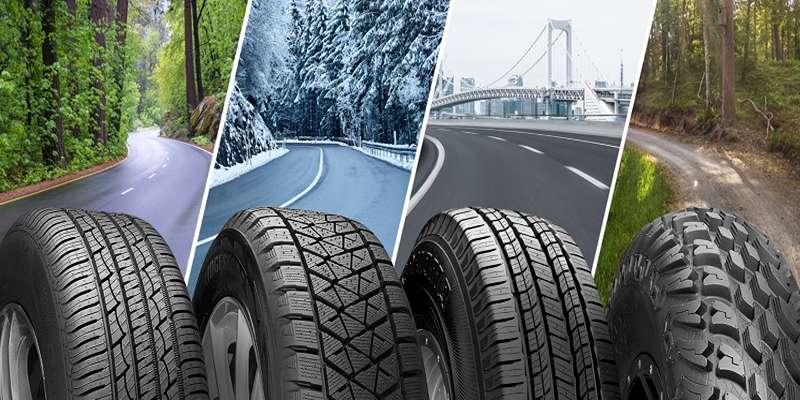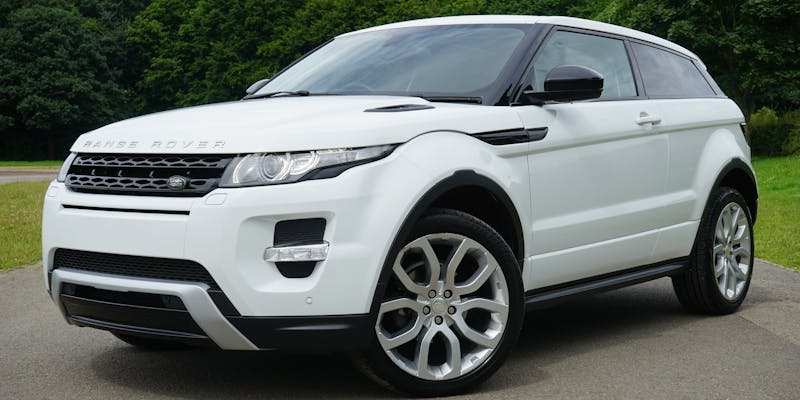Choosing the Right Tires for Your Vehicle
Tires are crucial for your safety and vehicle performance. Choosing the right tires for driving can improve handling, fuel efficiency, and overall safety. This article will guide you through the types of tires available, their benefits, and tips on selecting the best ones for your needs.
Types of Tires

Here are the main types of the tires:
All-Season Tires
All-season tires are designed to offer good performance in a variety of weather conditions. They work well in mild winters and hot summers, making them a popular choice for everyday drivers. These tires combine elements of both summer and winter tires to give you decent grip and performance throughout the year. If you drive mostly on paved roads and in moderate weather, all-season tires are a reliable choice.
Winter Tires
Winter tires, also known as snow tires, are made specifically for cold weather and icy roads. They are designed with deeper treads to improve traction in snow and ice. Winter tires are essential for anyone living in areas where temperatures frequently drop below freezing. Even though they are great for cold weather, it's important to switch back to regular tires during warmer months because they wear out faster on dry roads.
Summer Tires
Summer tires are designed for warm weather and provide better grip on both dry and wet roads during hot conditions. They are perfect for high-performance vehicles because they improve cornering and braking. However, these tires are not suited for winter driving as they lose their effectiveness in cold temperatures. If you live in an area with hot summers, summer tires can enhance your vehicle's performance during the warmer months.
Choosing the Right Tire for Your Vehicle
Here is how to choose the right tire for your vehicle:
Consider the Weather Conditions
One of the most important factors to consider when selecting tires is the weather. If you live in an area that experiences all four seasons, you might want to have both all-season tires and a set of winter tires. For those living in regions with extreme weather, switching between winter tires and summer tires can provide better safety and control throughout the year.
Evaluate Your Driving Habits
Your driving habits also play a significant role in determining the best tire. For example, if you frequently drive on highways and require high-speed performance, performance tires may be the right choice. On the other hand, if you drive off-road or on rugged terrain, all-terrain tires are a better fit.
Factors to Consider When Buying Tires
Here are the factors to consider when buying tires:
Tire Size
The size of your tire matters a lot. You should always check your vehicle's owner manual for the recommended tire size. Installing the wrong size can affect your car's performance, fuel efficiency, and even its safety. For most vehicles, tire size is indicated on the sidewall, and it includes measurements such as the width, height, and diameter.
Tread Pattern
Tread patterns are crucial for the tires performance on different road surfaces. Tires with larger and deeper treads provide better grip on snowy and muddy roads, while smaller treads work better on smooth, dry surfaces. Tread patterns also play a role in water dispersal, which can reduce the risk of hydroplaning.
Durability and Longevity
It's important to choose tires that are durable and long-lasting. The lifespan of a tire depends on factors such as the quality of the material, how often you drive, and the conditions in which you drive. Make sure to pick tires that are known for their durability, especially if you frequently drive long distances.
Tire Maintenance Tips

To extend the life of your tires and ensure they perform at their best, regular maintenance is key. Simple practices like checking the tire pressure, rotating tires, and aligning them can make a huge difference. Under-inflated tires can increase fuel consumption and wear out faster, while over-inflated tires reduce traction and increase the risk of a blowout.
Conclusion
Tires are a critical component of vehicle safety and performance. By understanding the different types of tires and considering your specific needssuch as weather conditions, driving habits, and the type of vehicleyou can choose the best tires for driving. Regular maintenance, such as checking the tire pressure and rotating the tires, will also help ensure that your tires last longer and perform well. Taking the time to select the right tires will not only improve your car's performance but also enhance your overall driving experience.
Frequently Asked Questions (FAQs)
What is the difference between all-season tires and winter tires?
All-season tires are designed to handle a wide range of weather conditions, including moderate winters and warm summers. However, they are not as effective in extreme winter conditions like snow or ice. Winter tires are specifically made for cold weather, with deeper treads and softer rubber that improves traction on snow and icy roads.
How often should I replace my tires?
On average, tires should be replaced every 6 years or after driving around 40,000 to 60,000 miles, depending on your driving habits and road conditions. However, it's always a good idea to check the tread depth regularly and replace tires when they show signs of significant wear.
Can I use summer tires in winter?
Summer tires are not suitable for winter conditions. They are made for warm temperatures and may become hard and lose grip in cold weather. It's recommended to switch to winter tires during the colder months to ensure safety and optimal performance.












